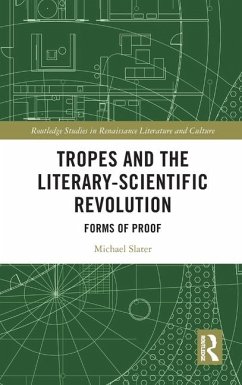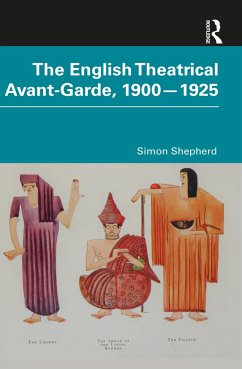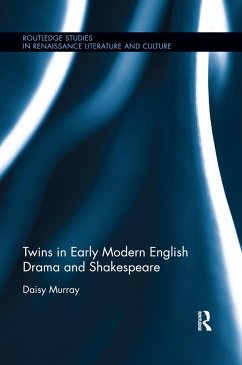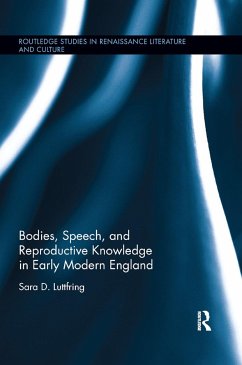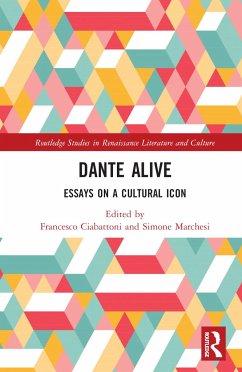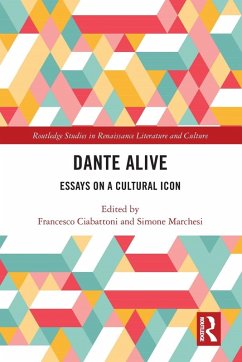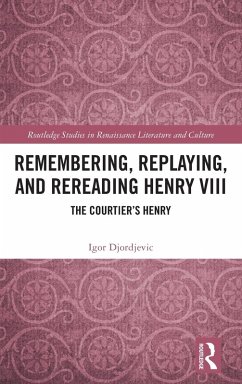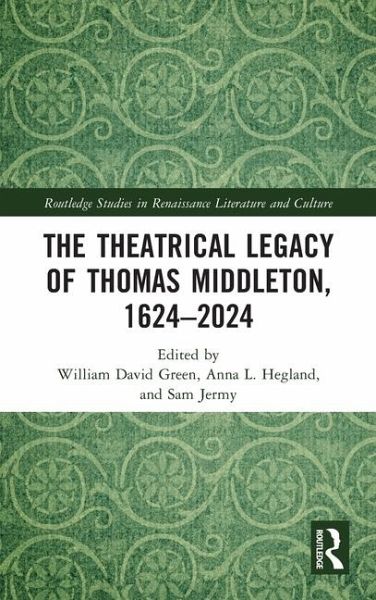
The Theatrical Legacy of Thomas Middleton, 1624-2024
Versandkostenfrei!
Versandfertig in 6-10 Tagen
144,99 €
inkl. MwSt.
Weitere Ausgaben:

PAYBACK Punkte
72 °P sammeln!
This volume celebrates Thomas Middleton's legacy as a dramatist, marking the 400th anniversary of Middleton's final and most contentious work for the public theatres, A Game at Chess (1624).The collection is divided into three sections: 'Critical and Textual Reception', 'Afterlives and Legacies', and 'Practice and Performance'. This division reflects the book's holistic approach to Middleton's canon, and its emphasis on the continuing significance of Middleton's writing to the study of early modern English drama. Each section offers an assessment of the place of Middleton's drama in culture, c...
This volume celebrates Thomas Middleton's legacy as a dramatist, marking the 400th anniversary of Middleton's final and most contentious work for the public theatres, A Game at Chess (1624).
The collection is divided into three sections: 'Critical and Textual Reception', 'Afterlives and Legacies', and 'Practice and Performance'. This division reflects the book's holistic approach to Middleton's canon, and its emphasis on the continuing significance of Middleton's writing to the study of early modern English drama. Each section offers an assessment of the place of Middleton's drama in culture, criticism, and education today through a range of critical approaches.
Featuring work from a range of voices (from early career, independent, and seasoned academics and practitioners), the collection will be appropriate for both specialists in early modern literature and drama who are interested in both theory and practice, and students or scholars researching Middleton's historical significance to the study of early theatre.
The collection is divided into three sections: 'Critical and Textual Reception', 'Afterlives and Legacies', and 'Practice and Performance'. This division reflects the book's holistic approach to Middleton's canon, and its emphasis on the continuing significance of Middleton's writing to the study of early modern English drama. Each section offers an assessment of the place of Middleton's drama in culture, criticism, and education today through a range of critical approaches.
Featuring work from a range of voices (from early career, independent, and seasoned academics and practitioners), the collection will be appropriate for both specialists in early modern literature and drama who are interested in both theory and practice, and students or scholars researching Middleton's historical significance to the study of early theatre.





